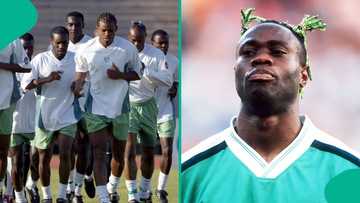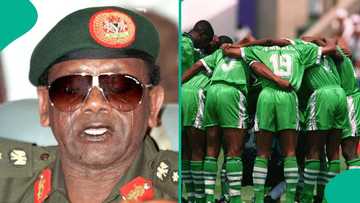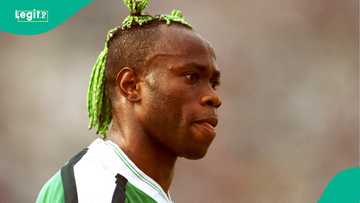How Abacha Ordered Super Eagles to Pull Out of AFCON 1996 Before Giving Each Player $20K
- The Super Eagles won their second African Cup of Nations in 1994, defeating Zambia 2-1 in Stade El Menzah in Tunis, but were unable to defend the title
- Nigeria were forced to withdraw from the 1996 tournament in South Africa due to safety concerns raised by General Sani Abacha
- It was reported that the then-military ruler summoned the squad to a meeting and compensated each player with $20,000
Super Eagles clinched their second African Cup of Nations in 1994 following their 2-1 win over Zambia at the tournament hosted by Tunisia, but they failed to defend the title in South Africa two years later.
Many believed Nigeria missed a chance to dominate African football in the 1990s, given their world-class squad at the time.
The 1996 edition of the continental showpiece was hosted by South Africa, which replaced the original hosts, Kenya.
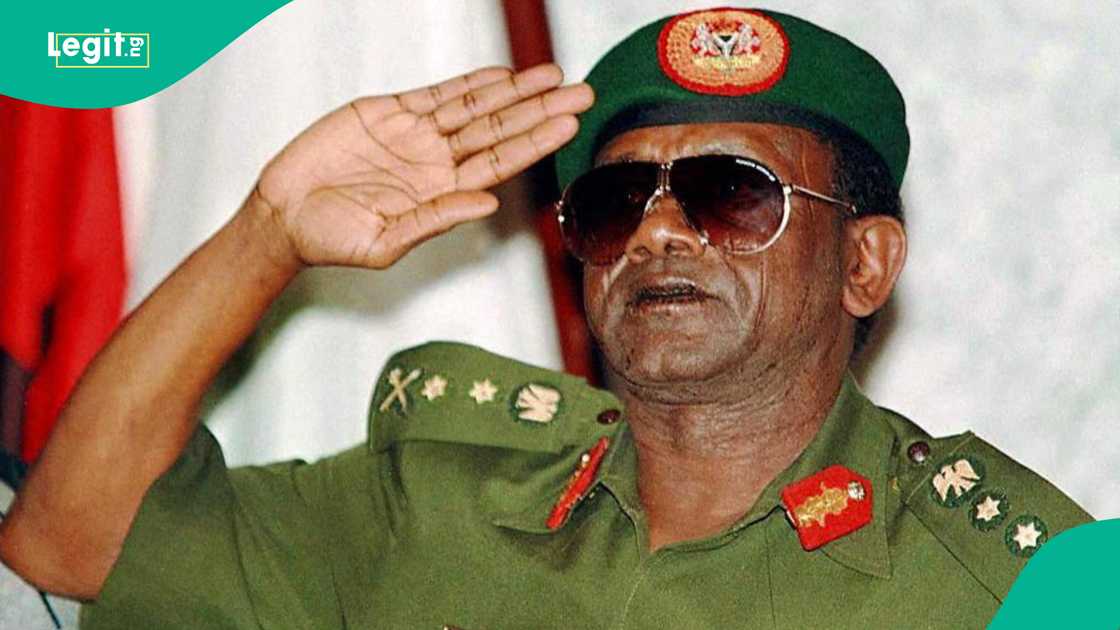
Source: Getty Images
The then head of state, General Sani Abacha, ordered the team to withdraw from the competition, claiming the federal government could not guarantee their safety.
Defending champions Nigeria were drawn in Group A alongside hosts South Africa, Egypt and Cameroon.
CAF, headed by Issa Hayatou, expressed strong disappointment over Nigeria's withdrawal and described it as a major blow to the tournament's prestige and competitive balance.
The decision came just days before the event was set to kick off on January 13, 1996, leaving organisers scrambling.
Geopolitical tensions and the Ogoni Nine
Abacha, who had seized power in a coup in 1993, was heavily criticised for executing nine minority rights activists, often referred to as the "Ogoni Nine".
It was gathered via ICIR Nigeria that Nelson Mandela, the first Black President of South Africa, pleaded with the general to pardon the vocal advocates.
Prominent environmental activist and leader of the Ogoni minority rights movement, Ken Saro-Wiwa, was executed by hanging on November 10, 1995, along with eight others.
The executions drew widespread international condemnation and led to Nigeria's suspension from the Commonwealth, contributing to the geopolitical tensions between Nigeria and South Africa.
Abacha orders Nigeria's withdrawal from AFCON 1996
Nigeria had to withdraw from the tournament due to safety concerns raised by the military government of General Sani Abacha.
Former Super Eagles star Tijani Babangida disclosed that the head of state summoned a meeting with the Super Eagles shortly before the start of the tournament.
Abacha informed the team that the government could not guarantee their safety in South Africa, though they could travel at their own risk. The former Ajax winger said via Soccernet:
"He (Abacha) summoned us to Aso Rock and explained to us his problem with the rest of the world and also with South Africa.
"He said he could not guarantee our safety and believed they could reach us just to get to him.
"He, however, told us that we could go at our own risk but we decided to honour the father of the nation."
Abacha compensates Super Eagles
Meanwhile, Nigerian outlet Vanguard reported that former forward Daniel Amokachi disclosed how he and his teammates received $20,000 each as compensation for Nigeria’s withdrawal from the continental showpiece.
According to the report, 'The Bull' had hoped for $35,000 per player from the leader, based on an expected $5,000 bonus per match for the seven games they were scheduled to play up to the final.
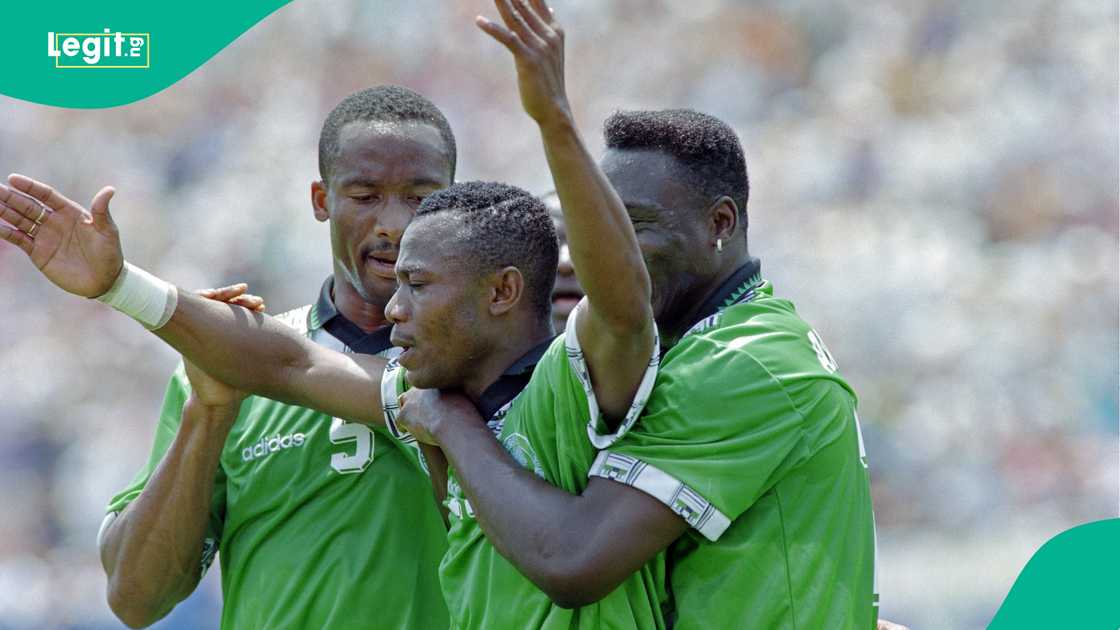
Source: Getty Images
Amokachi also confirmed that Abacha held a meeting with the squad and told them that tension between Nigeria and South Africa was just political and not football-related.
He added:
"That year we knew we had a great team that can win the championship and we were already looking forward to a wonderful event in South Africa."
Consequently, the Super Eagles were subsequently banned from the 1998 edition in Morocco but made a return at the 2000 edition, which they co-hosted with Ghana.
When Super Eagles visited Bola Tinubu
Legit.ng earlier reported that footage showing the moment Super Eagles stars visited Bola Tinubu has resurfaced online.
This comes after Taribo West decried how the late Peter Rufai was treated.
Source: Legit.ng

